
General Secretary Nguyen Phu Trong visits Sen Cha Tea Factory, Tam Duong Tea Investment and Development Joint Stock Company in Ban Bo Commune, Tam Duong District, Lai Chau Province_Photo: VNA
Throughout the process of leading the revolution, the Communist Party of Vietnam has always been steadfast in applying and creatively developing Marxism-Leninism to the specific conditions of the country, gradually building and perfecting the theory of socialism and the path to socialism in Vietnam, including the concept of the transitional period to socialism. However, in the past, the concept of the transitional period to socialism in Vietnam still revealed some limitations; basically, it did not propose methods and measures for the path to socialism suitable to the conditions of Vietnam. As a result, the socio-economy fell into an increasingly serious crisis in the late 1970s and early 1980s of the 20th century.
To bring the country out of the crisis, our Party proposed the renovation policy (in 1986), first of all, the renovation of thinking about socialism and the path to socialism in accordance with the specific conditions of Vietnam. Therefore, the 7th National Congress of the Party (in 1991) in the Platform for national construction in the transitional period to socialism, for the first time our Party outlined the model and path to socialism in Vietnam, including a new understanding of the transitional period to socialism. Through the following Congresses, our Party continued to supplement and develop, making "the theory on the renovation policy, socialism and the path to socialism in Vietnam increasingly complete and gradually realized" (1). This issue is once again clarified and deepened in the work "Some theoretical and practical issues on socialism and the path to socialism in Vietnam" by General Secretary Nguyen Phu Trong.
First of all, the content of the work affirmed the inevitability of the path to socialism in Vietnam. That is, “national independence associated with socialism is the fundamental and consistent line of the Vietnamese revolution and is also the key point in the ideological legacy of President Ho Chi Minh … Right from its inception and throughout the revolutionary struggle, the Communist Party of Vietnam always affirmed: Socialism is the goal and ideal of the Communist Party and the Vietnamese people; advancing to socialism is an objective requirement, the inevitable path of the Vietnamese revolution” (2).
However, what is socialism and how to move towards socialism in accordance with Vietnam's conditions is not a simple problem in both theory and practice. "That is what we always worry about, think about, research, and choose to gradually perfect our guidelines, viewpoints, and implementation organization, so that it both follows general rules and is suitable for Vietnam's specific conditions" (3). The socialist society that the Vietnamese people are striving to build was affirmed by General Secretary Nguyen Phu Trong: “Up to now, although there are still a number of issues that need to be further studied, we have formed a general awareness: The socialist society that the Vietnamese people are striving to build is a society with a rich people, a strong country, democracy, fairness, and civilization; owned by the people; with a highly developed economy, based on modern productive forces and appropriate progressive production relations; with an advanced culture, imbued with national identity; people have a prosperous, free, and happy life, with conditions for comprehensive development; ethnic groups in the Vietnamese community are equal, united, respect, and help each other to develop together; there is a socialist rule-of-law state of the people, by the people, for the people led by the Communist Party; there are friendly and cooperative relations with countries around the world” (4).
Marxism-Leninism holds that in order to move from an outdated and backward socio-economic form to a new and higher socio-economic form, a certain transitional period must be passed. The length of the transitional period depends on the conditions, characteristics, methods, and measures to build a new regime of each nation. So, what is the transitional period to socialism in Vietnam like? This is not a simple issue, because before the renovation, we still had many limitations in our perception and actions, and wanted to rush the process. Summarizing revolutionary practices, especially the practices of the renovation and national construction in the transitional period to socialism, General Secretary Nguyen Phu Trong pointed out: “In the years of carrying out the renovation, from summarizing practices and studying theories, the Communist Party of Vietnam has gradually gained a more and more correct and profound understanding of socialism and the transitional period to socialism; gradually overcoming some previous simple notions such as: identifying the ultimate goal of socialism with the tasks of the immediate period; emphasizing one-sidedly the relations of production and the egalitarian distribution regime, not fully seeing the requirements for developing productive forces in the transitional period, not acknowledging the existence of economic sectors; identifying the market economy with capitalism; identifying the rule of law state with the bourgeois state...”(5). Therefore, “the transition to socialism is a long-term, extremely difficult and complicated undertaking, because it must create profound qualitative changes in all areas of social life. Vietnam moves towards socialism from a backward agricultural country, bypassing the capitalist regime, with very low productive forces, and having gone through decades of war, with very serious consequences; hostile forces constantly seek to sabotage, so it is even more difficult and complicated, and it is necessary to go through a long transition period with many steps, forms of economic and social organization intertwined, with a struggle between the old and the new. Saying that bypassing the capitalist regime means bypassing the capitalist regime of oppression, injustice, and exploitation; bypassing bad habits, political institutions and regimes that are not compatible with the socialist regime, not ignoring the achievements and civilized values that humanity has achieved in the period of capitalist development. Of course, The inheritance of these achievements must be selective from a scientific and developmental perspective" (6).
To successfully build socialism, General Secretary Nguyen Phu Trong emphasized that during the transition period to socialism, our Party, State and people must simultaneously carry out the following directions and tasks:
Firstly, “promoting industrialization and modernization of the country associated with the development of a knowledge-based economy” (7). This is the fundamental task of the transitional period, fully preparing the socio-economic conditions of socialism. To care for and improve the material and spiritual life of the people, it is necessary to first promote socio-economic development, in which industrialization and modernization associated with the development of a knowledge-based economy is the core content to achieve that goal, especially in the context of the impact of the Fourth Industrial Revolution, the role of the knowledge-based economy is increasingly important. To achieve this goal, it is necessary to develop human resources, especially high-quality human resources, promote industrialization and modernization based on the foundation of scientific and technological advances and innovation, gradually realizing the goal of building our country into a developing country with modern industry and high average income by 2030 and a developed country with high income by 2045.
Second , “developing a socialist-oriented market economy” (8). Along with the process of developing an increasingly correct, complete, and appropriate perception of socialism in accordance with the specific conditions of Vietnam, the perception of developing a socialist-oriented market economy has also been gradually formed and developed. Accordingly, “putting forward the concept of developing a socialist-oriented market economy is a very fundamental and creative theoretical breakthrough of our Party, an important theoretical achievement after more than 35 years of implementing the renovation policy, originating from Vietnam's reality and selectively absorbing world experience. According to our Party's perception, “a socialist-oriented market economy is a modern, internationally integrated market economy, fully and synchronously operating according to the laws of the market economy, under the management of a socialist rule-of-law state, led by the Communist Party of Vietnam; ensuring socialist orientation, aiming at the goal of “a rich people, a strong country, democracy, fairness, and civilization”. This is a new type of market economy in the history of market economy development; a type of economic organization that both follows the laws of the market economy and is based on and guided and governed by the principles and nature of socialism, expressed in all three aspects: ownership, management organization, and distribution. This is not a capitalist market economy and is not yet a fully socialist market economy (because our country is still in the transition period)”(9).

Loading and unloading export goods at Hai Phong port_Source: nhiepanhdoisong.vn
General Secretary Nguyen Phu Trong also pointed out that the current market economy in Vietnam "has many forms of ownership and many economic sectors. Economic sectors operating under the law are all important components of the economy, equal before the law, developing together in the long term, cooperating and competing healthily. In which, the state economy plays a leading role; the collective economy and cooperative economy are constantly consolidated and developed; the private economy is an important driving force of the economy; the economy with foreign investment capital is encouraged to develop in accordance with the strategy and planning for socio-economic development. The distribution relationship ensures fairness and creates momentum for development; implements a distribution regime mainly based on labor results, economic efficiency, and at the same time according to the level of capital contribution and other resources and distributes through the social security and social welfare system. The State manages the economy by law, strategy, planning, plans, policies and material forces to "orient, regulate, and promote socio-economic development" (10).
Third, “building an advanced culture imbued with national identity, building people, improving people’s lives, and achieving social progress and justice” (11). Building a socialist culture and people is one of the important tasks in the transitional period to building a new regime. Eliminate remnants and backward cultural elements that hinder the development of society; preserve and promote the value of national cultural identity, and absorb the cultural quintessence of humanity. General Secretary Nguyen Phu Trong emphasized: “The culture we are building is an advanced culture, imbued with national identity, a culture unified in diversity, based on progressive and humanistic values; Marxism-Leninism and Ho Chi Minh Thought play a leading role in the spiritual life of society, inheriting and promoting the fine traditional values of all ethnic groups in the country, absorbing the achievements and quintessence of human culture, striving to build a civilized and healthy society, for the true interests and dignity of people, with increasingly high levels of knowledge, morality, physical strength, lifestyle and aesthetics” (12).
Socialist society is a society that strives for progressive and humane values, based on the common interests of the whole society in harmony with the legitimate interests of the people. Therefore, economic development must be associated with improving people's lives, implementing social progress and justice. Accordingly, “it is necessary to link the economy with society, unify economic policies with social policies, economic growth must go hand in hand with the implementation of social progress and equity in each step, each policy and throughout the development process. That means: not waiting until the economy reaches a high level of development before implementing social progress and equity, and certainly not “sacrificing” social progress and equity to pursue purely economic growth. On the contrary, every economic policy must aim at the goal of social development; every social policy must aim to create a driving force for economic development; encouraging legal enrichment must go hand in hand with sustainable poverty reduction and hunger eradication, caring for those with meritorious services and those in difficult circumstances. This is a principled requirement to ensure healthy, sustainable development in the direction of socialism” (13).
Fourth, “firmly ensure national defense and security, social order and safety” (14). The construction of socialism is closely linked to the protection of the Socialist Republic of Vietnam. In particular, the motto that needs to be implemented is to ensure the strengthening of national defense and security, ensuring social order and safety. This is a condition that contributes to political and social stability for the development of the country in the context of innovation and increasingly deep international integration.
Fifth, “implementing a foreign policy of independence, self-reliance, multilateralization, diversification, peace, friendship, cooperation and development, proactively and actively integrating into the international community” (15). Implementing an open foreign policy in the spirit of working class internationalism, for the benefit of each nation and people and the benefit of all humanity. Proactively and actively integrating into the international community comprehensively in all areas of social life, to take advantage of opportunities, overcome challenges and develop the country rapidly and sustainably. General Secretary Nguyen Phu Trong pointed out: “The Party, in leading and ruling, in determining political directions and making decisions, cannot only start from the realities of its own country and people, but must also study and refer to experiences from the realities of the world and the times. In today's globalized world, the development of each nation and people cannot be isolated from the impacts of the world and the times, of current events and its situation. Therefore, we must proactively and actively integrate internationally, implement a foreign policy of independence, self-reliance, peace, cooperation and development, multilateralize and diversify international relations on the basis of respecting independence, sovereignty, territorial integrity, non-interference in each other's internal affairs, equality and mutual benefit” (16).
Sixth, “building socialist democracy, promoting the will and strength of great national unity, combining with the strength of the times” (17). Democratizing social life is a common trend of human development. To demonstrate the superior nature of the socialist regime, we must build and gradually perfect democracy, expand the people's mastery in all areas of social life. Create social consensus, consolidate and promote the strength of great national unity, combining with the strength of the times. General Secretary Nguyen Phu Trong emphasized: “In the socialist political regime, the relationship between the Party, the State and the people is a relationship between subjects with unified goals and interests; all Party guidelines, policies, laws and activities of the State are for the benefit of the people, taking the happiness of the people as the goal to strive for. The political model and general operating mechanism are that the Party leads, the State manages and the people are the masters. Democracy is the essence of the socialist regime, both the goal and the driving force of the socialist construction; building socialist democracy and ensuring that power truly belongs to the people is an important and long-term task of the Vietnamese revolution” (18).
Seventh, “building a socialist rule-of-law state of the people, by the people, for the people” (19). Along with the process of developing awareness of socialism and the path to socialism in Vietnam, awareness of the issue of building a socialist rule-of-law state of the people, by the people, for the people has also been gradually formed and developed. Accordingly, “we perceive that the socialist rule-of-law state is essentially different from the bourgeois rule-of-law state in that: the rule of law under the capitalist regime is essentially a tool to protect and serve the interests of the bourgeoisie, while the rule of law under the socialist regime is a tool to express and implement the people's right to mastery, to ensure and protect the interests of the vast majority of the people. Through law enforcement, the State ensures the conditions for the people to be the subject of political power, to exercise dictatorship over all actions that harm the interests of the Fatherland and the people” (20). Therefore, “we advocate the continuous promotion of democracy, building a socialist rule-of-law state that is truly of the people, by the people and for the people, on the basis of the alliance between workers, farmers and intellectuals led by the Communist Party of Vietnam. The state represents the people's right to mastery, and at the same time organizes the implementation of the Party's guidelines; there are mechanisms for the people to exercise their right to direct mastery and representative democracy in all areas of social life, and participate in social management” (21).
Eighth, “building a clean, strong and comprehensive Party and political system” (22). The most decisive factor in the construction and protection of the socialist Vietnamese Fatherland is to promote the leadership role of the Communist Party of Vietnam. We must build a Party worthy of being the core of the political system, leading and building a clean, strong political system that meets the requirements and tasks of leading and managing the country’s development. General Secretary Nguyen Phu Trong emphasized: “Deeply aware that the leadership of the Communist Party is the decisive factor for the success of the renovation process and ensuring the country's development in the right direction of socialism, we pay special attention to the work of Party building and rectification, considering this a key task of vital significance to the Party and the socialist regime... Our Party persistently takes Marxism-Leninism and Ho Chi Minh Thought as the ideological foundation and compass for revolutionary action, taking democratic centralism as the basic organizational principle. The Party leads by platforms, strategies, orientations on major policies and guidelines; by propaganda, persuasion, mobilization, organization, inspection, supervision and by exemplary actions of Party members; and by unified leadership of personnel work. Aware of the dangers to the ruling party of corruption, bureaucracy, degeneration..., especially in the conditions of a market economy, the Communist Party of Vietnam sets out the requirement to constantly self-renew, self-reform, and self-reform. "rectify and fight against opportunism, individualism, corruption, bureaucracy, waste, degeneration,... within the Party and in the entire political system" (23).
Thus, to build socialism in Vietnam, it is necessary to correctly identify the characteristics, content, and essence of the transitional period, in order to set out the direction and tasks that need to be implemented in the right direction. This is a period of struggle, intertwined between the old and the new, between the progressive and the backward, between capitalism and socialism. General Secretary Nguyen Phu Trong emphasized: “Our Party recognizes that Vietnam is currently in the process of building and transitioning to socialism. During the transition period, socialist factors are formed, established and developed, intertwined and competing with non-socialist factors, including capitalist factors in a number of areas. This intertwining and competition is even more complex and fierce in the conditions of a market mechanism, openness and international integration. Besides achievements and positive aspects, there will always be negative aspects and challenges that need to be considered soberly and handled promptly and effectively. It is a very fierce and arduous struggle, requiring a new vision, new mettle and new creativity. “Moving forward in the direction of socialism is a process of constantly consolidating, enhancing and promoting socialist factors so that those factors increasingly dominate, overwhelm and win. Success or failure depends first and foremost on the correctness of the Party's line, political mettle, leadership capacity and fighting strength" (24). These are very important guidelines for the Communist Party of Vietnam in the process of leading the country's development during the transition period to socialism. Therefore, the entire Party, the entire army and the entire people need to continue to study and thoroughly grasp them in their perception and action to gradually realize socialism in Vietnam./.
Dr. PHAM VAN GIANG
Regional Political Academy III
---------------------
(1) Documents of the 13th National Congress of Delegates, National Political Publishing House Truth, Hanoi, 2021, vol. I, p. 103
(2), (3), (4), (5) Nguyen Phu Trong: Some theoretical and practical issues on socialism and the path to socialism in Vietnam, National Political Publishing House Truth, Hanoi, 2022, pp. 22, 23, 24, 23 – 24
(6), (7), (8), (9) Nguyen Phu Trong: Some theoretical and practical issues on socialism and the path to socialism in Vietnam, op. cit., pp. 25, 24, 24, 25 - 26
(10), (11), (12), (13), (14) Nguyen Phu Trong: Some theoretical and practical issues on socialism and the path to socialism in Vietnam, op. cit., pp. 26, 24, 27, 27, 24
(15), (16), (17), (18), (19), (20) Nguyen Phu Trong: Some theoretical and practical issues on socialism and the path to socialism in Vietnam, op. cit., pp. 24, 37, 24 - 25, 28, 25, 29
(21), (22), (23), (24) Nguyen Phu Trong: Some theoretical and practical issues on socialism and the path to socialism in Vietnam, op. cit., pp. 28 - 29, 25, 29 - 30, 35 - 36
Source








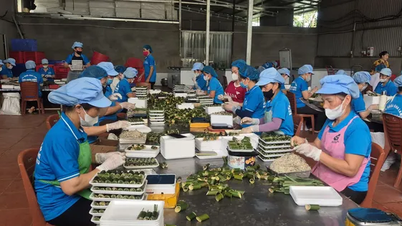





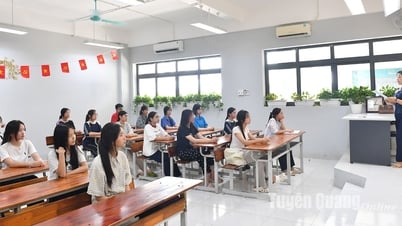


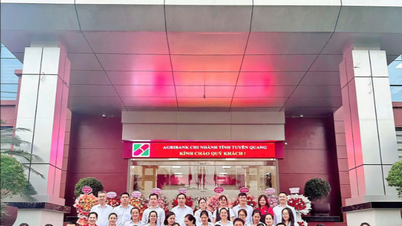

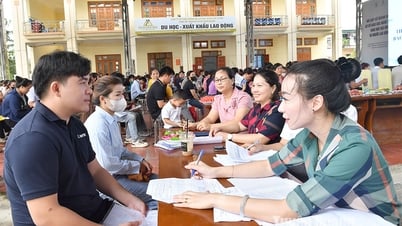
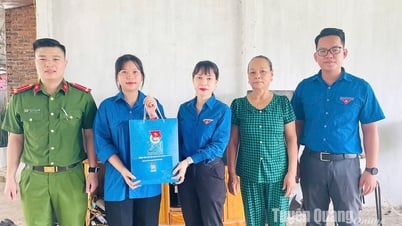
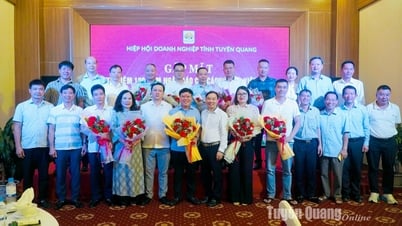
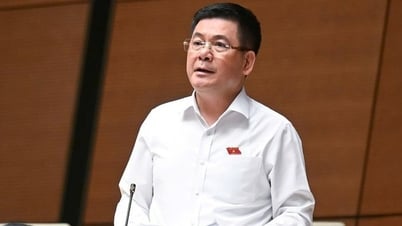

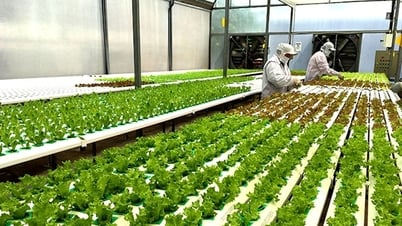






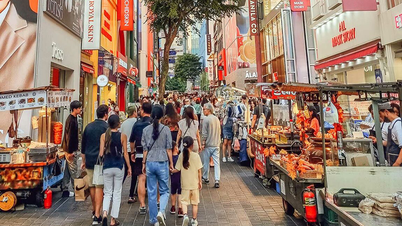

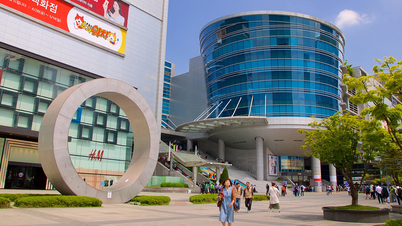
































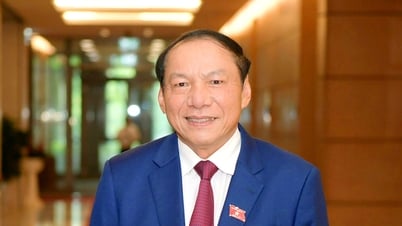








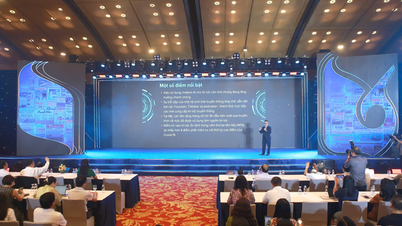








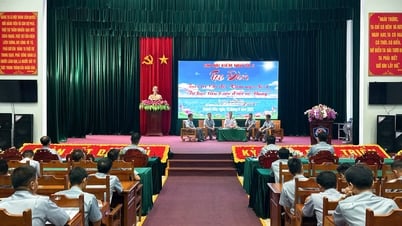




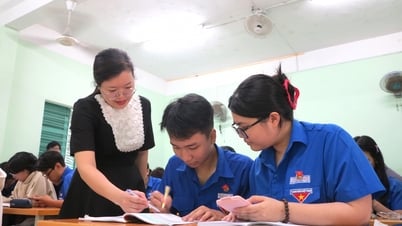












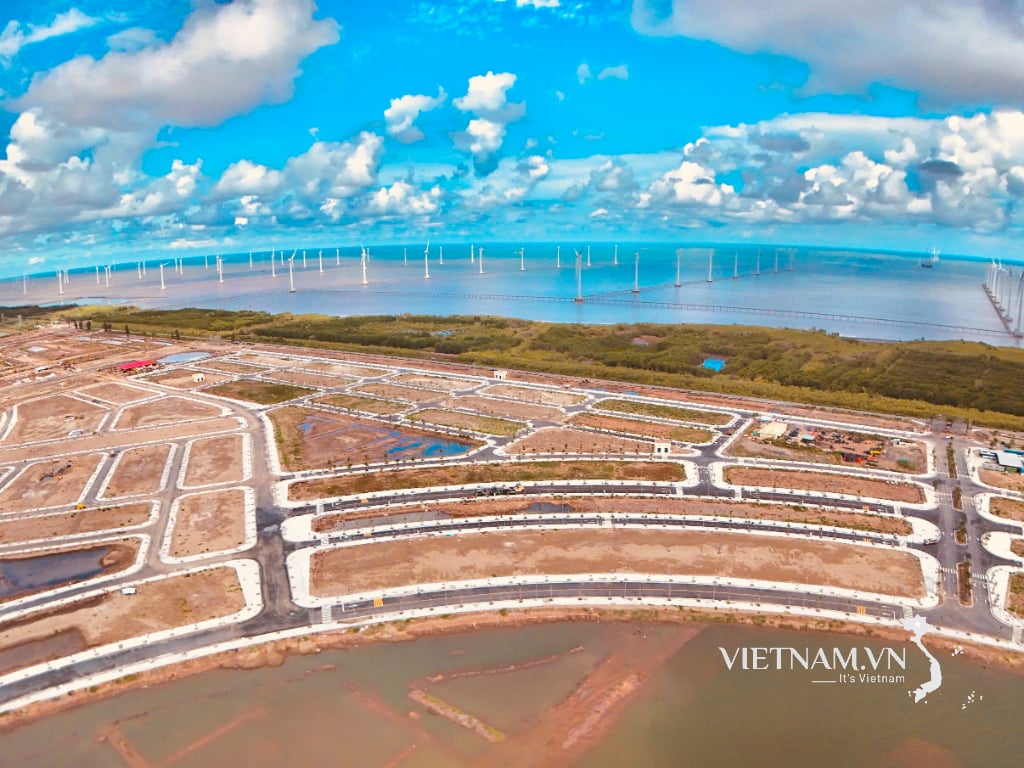


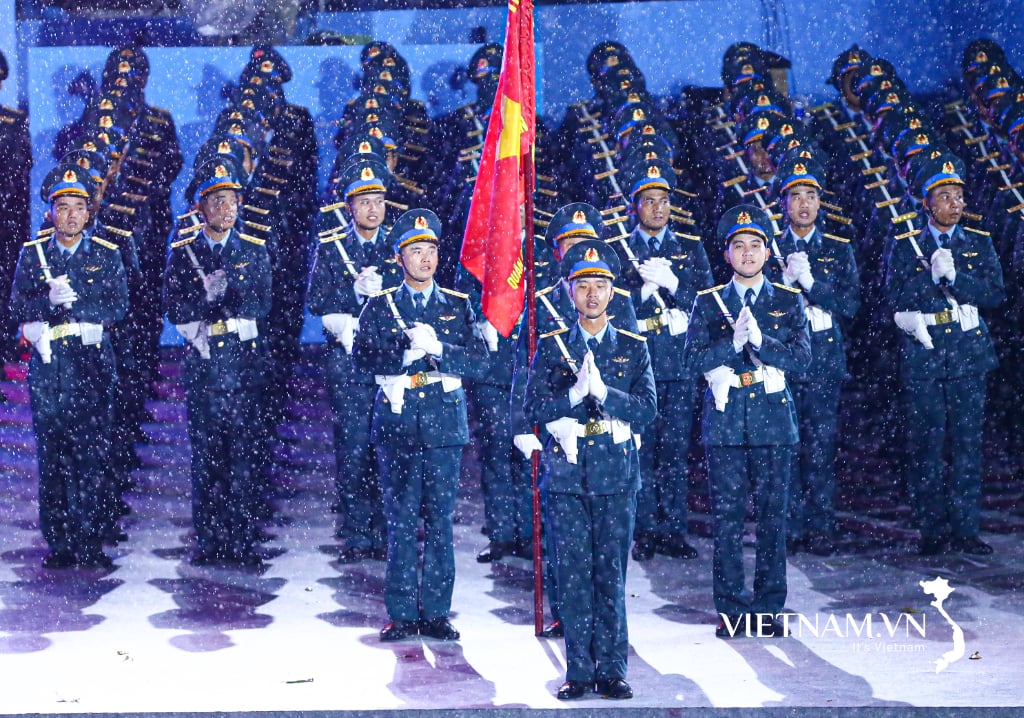
Comment (0)